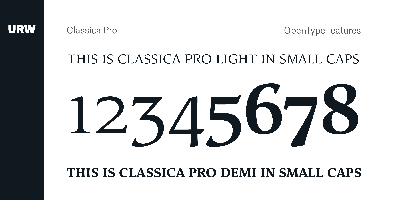Font Selection for Beginners: 10 Golden Rules
Font Selection for Beginners: 10 Golden Rules
Choosing the right font can make or break your design. Whether you're creating a website, designing a logo, or working on a presentation, typography plays a crucial role in how your message is received. Here are 10 golden rules to help you select the perfect font every time.
1. Understand Your Audience
Before picking a font, ask yourself: who will be reading this? A playful, handwritten font might work great for a children's brand but would look unprofessional on a law firm's website. Your audience should always guide your typography choices.
2. Prioritize Readability
No matter how beautiful a font looks, it's useless if people can't read it. Avoid overly decorative fonts for body text. Save the fancy stuff for headlines and use clean, legible fonts for paragraphs. Your readers will thank you.
3. Limit Your Font Choices
Here's a golden rule within a golden rule: stick to 2-3 fonts maximum in any project. Using too many fonts creates visual chaos and makes your design look amateurish. One font for headlines and another for body text is often all you need.
4. Consider the Context
Different projects call for different fonts. A tech startup might lean toward modern, geometric sans-serifs, while a luxury brand might prefer elegant serifs. Think about where and how your font will be used before making a decision.
5. Check Font Pairing Compatibility
If you're using multiple fonts, make sure they complement each other. A good rule of thumb is to pair a serif with a sans-serif, or combine fonts with contrasting weights. Test different combinations until you find harmony.
6. Pay Attention to Hierarchy
Use font size, weight, and style to create a clear visual hierarchy. Your headlines should be bold and attention-grabbing, while subheadings and body text should guide readers through your content naturally.
7. Test Across Devices
A font that looks amazing on your desktop might be hard to read on mobile. Always test your font choices across different devices and screen sizes to ensure consistency and readability everywhere.
8. Respect Font Licensing
Not all fonts are free to use commercially. Before downloading and using a font, check its license. Using a font without proper licensing can lead to legal issues and costly fines down the road.
9. Consider Loading Speed
Web fonts can slow down your website if not optimized properly. Choose fonts that load quickly and consider using system fonts or font subsets to improve performance. Your visitors won't wait around for fancy fonts to load.
10. Trust Your Instincts
After following all the technical rules, sometimes you just need to trust your gut. If a font feels right for your project and meets all the practical requirements, go for it. Good typography is both science and art.
Final Thoughts
Mastering font selection takes time and practice. Start with these 10 golden rules, experiment often, and pay attention to what works and what doesn't. Soon enough, you'll develop an eye for typography that elevates every project you touch.
Remember: the best font is the one that serves your content and your audience effectively. Happy designing!


